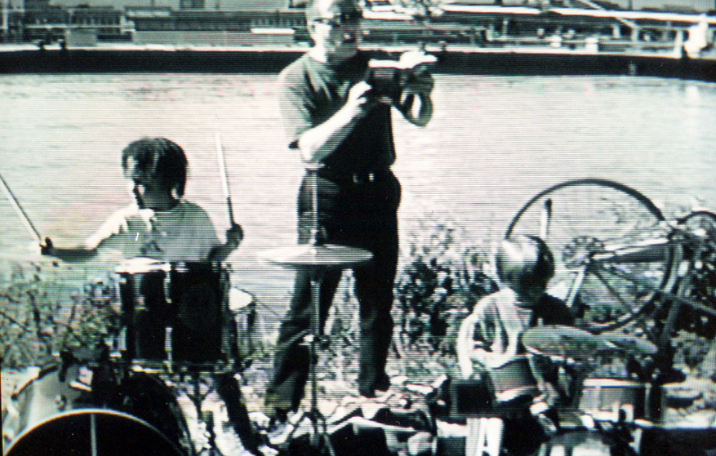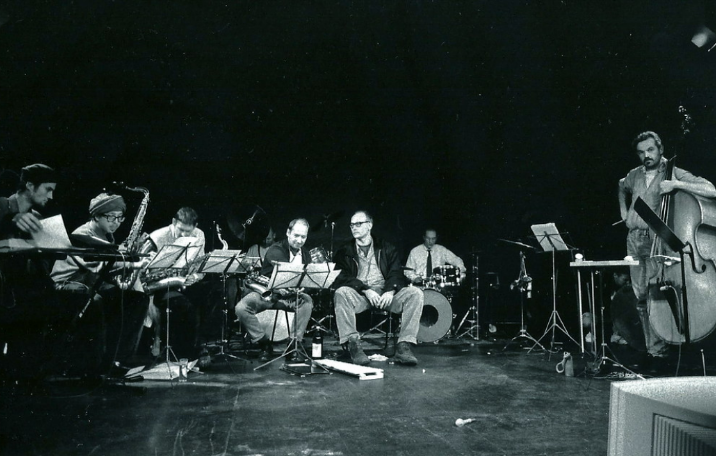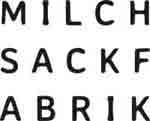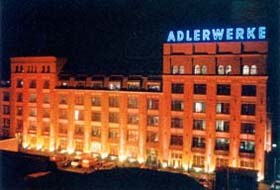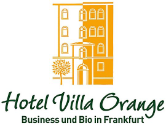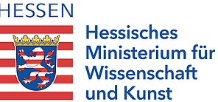F.I.M. - History
Frankfurt has a rich history of improvised music. Starting with the German Jazz Festival of the 70s and various evenings in the Jazzkeller, Heiner Göbbels' "Materialausgaben", various events curated by Rüdiger Carl in the Portikus to the FIM of the 90s, performances with Alfred Harth, the festivals in the Mouson by Augst, Korn and Carl, there was a continuous series of events of this music.
The F.I.M. was founded in 1993 by Alfred 23 Harth and Christof Korn. The musicians' initiative, supported by about 30-40 musicians, was active with regular sessions, festivals and its own ‘impro-orchestra’ until about 1998. After that, there were still small ensembles of individual musicians. At the beginning of the millennium, the scene had largely dissolved. After a long period of standstill, in 2014 Christof Krause and Jürgen Werner, active in the FIM of the 90s as listeners and musicians, took the initiative to provide a podium for experimentation and free improvisation in the city again. The scene of musicians from the FIM period was no longer present, so the F.I.M. was established in a modified form as an event/concert format - Forum Improvised Music. With the support of the cultural office of the city, and later the state of Hesse, "Open Stages" have been organized since 2016 with sometimes top-class opener formations. Formats such as Formationen+ and Raumbespielungen were successively added. The F.I.M., founded in the tradition of free jazz, today integrates diverse forms of expression of free improvisation, such as new music, electronic music, border areas of new music or improvised dance.
The F.I.M. sees itself as a pulse generator for improvised music in Frankfurt, and would like to continue to offer interested musicians in the city and region a podium for "free" musical expression.
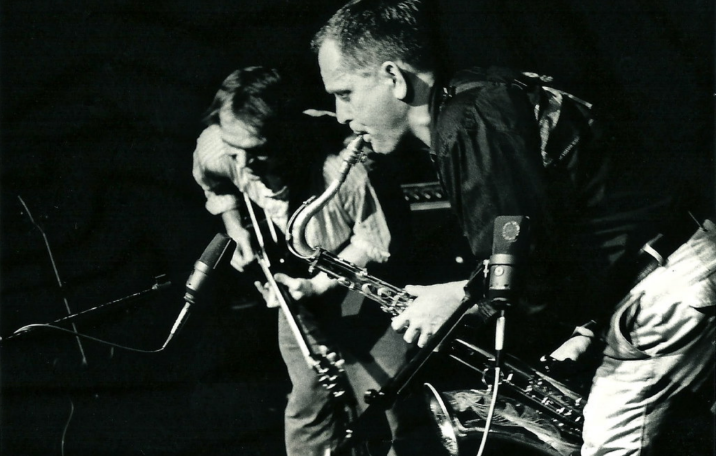
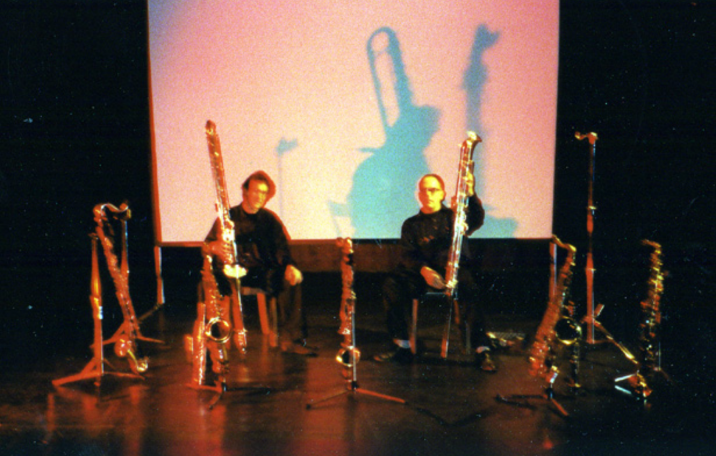
Jürgen Schwab writes about the history of the FIM in "Der Frankfurt Sound".
(Published 2004, Societätsverlag, SBN 3-7973-0888-4):
"At the beginning of the 1990s, musicians interested primarily in free improvised music joined forces in many German cities. They oriented themselves less to free jazz, which at the time could already be called classical, but rather attempted to create avant-garde music out of thin air with arbitrary "objets trouvé".
Occasionally their attitude, not unlike punk, led to "extremely nourishing music," but just as often it led to boredom and irrelevance, at least for the critical listener. Some musicians were inspired to create interesting projects by the open-mindedness and experimental spirit that prevailed in this scene.
Alfred Harth and the guitarist and composer Christoph Korn founded the FIM in Frankfurt in 1993. This "forum improvisierender musiker" (forum of improvising musicians) invited people to monthly sessions in the old Gallus Theatre, cooperated with like-minded initiatives and musicians from other cities, and organized annual festivals at which top-class avant-garde artists such as Charles Gayle, Derek Bailey, and Peter Brötzmann also performed. Other activities included three "jazz vacations" named multi-day open-air events and the founding of the print-on-demand Internet label recout. A separate FIM orchestra was set up, led by Rüdiger Carl.
The German free jazz pioneer has lived in Frankfurt since the early 1980s, where he first became active with avant-garde concerts in the Portikus exhibition hall. In the FIM, he found a local scene of about 30 like-minded avant-garde musicians.
Among them were the bass clarinettist and zither player Burkard Kunkel, the drummer Bertram Ritter, the voice and performance artist Oliver Augst, the electronics tinkerer Peter Fey and Alfred Harth. Musicians from the classical jazz camp were also interested in FIM's experiments. Heinz Sauer cooperated in various projects and met the very young Bertram Ritter, whom he brought into his quartet as a drummer. The festival "pol," founded in 2000 and curated by Carl, Korn and Augst, also emerged from this scene and created cross-connections between the "important cultural microsystems of the 1990s," which Alfred Harth names as follows: "free improvised music, electro-acoustic scene, clicks & cuts, theatre music, art and galleries, members of the Ensemble Modern, the HR Big Band, the all-important live scene in the Dreikönigskeller." Towards the end of the 1990s, the activities of the association, which had meanwhile been reinterpreted as "frankfurts indeterminables musiqwesen," ebbed away, although it is heard that it is active again or continues to be active "under electronic auspices" in a personnel-reduced form."
